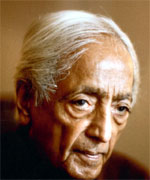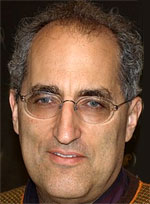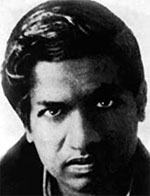

Reading in Progress
Series: Brilliant Minds
Brilliant Minds
 August 3 - xxx, 2024
August 3 - xxx, 2024
Sapiens: A Brief History of Humankind
Author: Yuval Noah Harari
ISBN-10: 0062316095
ISBN-13: 978-0062316097
Genre: evolution, cultural anthropology, history, science, philosophy
Pages: 443 pages
Country:
Publisher: Harper
Publication date: February 10, 2015
Rating:
![]()
![]()
![]()
![]()
![]() (5 out of 5 stars)
(5 out of 5 stars)
Accolades
Sapiens has been a runaway bestseller in the NY Times for 182 weeks and counting. It has been translated into 65 languages. It earned the 'thumbs up' of Obama, Bill Gates and Zuckerberg. Out of 139,594 Amazon reviews, it averaged an impressive 4.6 (out of 5). The book launched Yuval Noah Harari as one of the world's most sought-after provocative thinkers.
Man Created Castles in the air and lived in them
When I first stumbled into Yuval Harari's presentation about man creating fiction from thin air and then lives his life according to the dictates of that fiction, I was hooked. I began to see the world in a different way. It was through this template that I perceived how the world is controlled - from big governments to even Yoga Alliance. Thanks to Marky, I finally, I get to read his book.

Human Timeline
Homo Sapiens (us) developed Culture. A chronological array of cultures is called History. History is shaped by 3 revolutions - Cognitive, Agricultural and Scientific
- 13.5 Bln years ago - Big Bang, time, energy and space came into existence. These building blocks of the universe came to be known as Physics. 300,000 years after that, matter appeared. Atoms emerged and clustered into molecules. The basic building block of matter is called Chemistry.
- 4.5 Bln years ago - Formation of planet Earth.
- 3.8 Bln years ago - Earth came into being and organisms flourished. The study of these living organisms is called Biology.
- 6 Mln years ago - Last common grandmother of humans and chimpanzees.
- 2.5 Mln years ago - Evolution of the genus Homo in Africa. First stone tools.
- 2 Mln years ago - Humans spread from Africa to Eurasia. Evolution of different humans
- 500,000 years ago - Neanderthals evolve in Europe and the Middle East.
- 300,000 Mln years ago - Daily usage of fire.
- 200,000 years ago - Homo sapiens evolves in East Africa.
- 70,000 years ago - Man's Cognitive Revolution took place. Beginning of history. Sapiens spread out of Africa. Homo Sapiens (us) developed culture. Emergence of fictive language
- 45,000 years ago - Sapiens settle Australia. Extinction of Australian megafauna.
- 30,000 years ago - Extinction of Neanderthals.
- 16,000 years ago - Sapiens settle America. Extinction of American megafauna.
- 13,000 years ago - Extinction of Homo floresiensis. Homo sapiens the only surviving human species.
- 12,000 years ago - Domestication of plants and animals. Permanent settlements.
- 5,000 years ago - First kingdoms, script and money. Polytheistic religions.
- 4,250 years ago - First empire – the Akkadian Empire of Sargon.
- 2,500 years ago - Invention of coinage – a universal money. The Persian Empire – a universal political order ‘for the benefit of all humans’. Buddhism in India – a universal truth ‘to liberate all beings from suffering’.
- 2,000 years ago - Han Empire in China. Roman Empire in the Mediterranean. Christianity.
- 1,400 years ago - Islam.
- 500 years ago - The Scientific Revolution. Humankind admits its ignorance and begins to acquire unprecedented power. Europeans begin to conquer America and the oceans. The entire planet becomes a single historical arena. The rise of capitalism.
- 200 years ago - The Industrial Revolution. Family and community are replaced by state and market. Massive extinction of plants and animals.
- The Present - Humans transcend the boundaries of planet Earth. Nuclear weapons threaten the survival of humankind. Organisms are increasingly shaped by intelligent design rather than natural selection.
- The Future - Intelligent design becomes the basic principle of life? Homo sapiens is replaced by superhumans?
The Cognitive Revolution
The Agricultural Revolution
The Scientific Revolution
The Industrial Revolution
Part A: The Cognitive Revolution
1 An Animal of No Significance
Nothing Special
Humans (Homo) have been around since 2 million years ago. They were gathered in clans, loved, laughed and competed for power and status. But so did the other primates and animals. There was nothing special about man during this time.
Species
Beings who can mate and produce an offspring that can in turn reproduce, belong to the same species. A Chinese and African, although differing in color and looks can produce a viable offspring. They both belong to the same species.
Genus
A horse and donkey belong to different species. They can mate and produce an offspring, the mule, but it will be sterile. But the horse and donkey both came from a common ancestor. This means they both belong to the same genus, but not from the same species. Lions, tigers and the big cats all come from the same genus, Panthera. Biologists pair the genus-species. For humans, we are Homo (genus, man) sapiens (species, Wise Man). Under the Homo genus, there are a few species other than Sapiens - Neanderthal, Homo erectus, Denisovans, etc. But they all died out, leaving us, Sapiens, to be the only surviving species under Homo.
Family
This is the upper grouping of genus. We, Homo Sapiens, fall under the Family of Big Apes - chimpanzees, gorillas and orang-utans. 6 million years ago, chimpanzees and humans had the same mother.
Closet Secrets
Humans belonging to a grid of animals used to be contentious since religion wanted to categorize Man as special - of divine origin. But that has long been disproven. In fact, Man, is not the only species under Homo. We have genetic siblings. Human or Homo refers to us and the Neanderthals, Denisovans, etc.
Humans (not us, but Homo) wandered to different parts of the world and began adapting to different environments. Scientists gave them different species names.
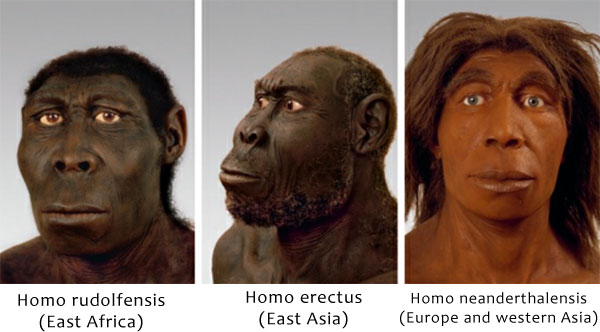
Homo erectus survived a long 2 million years, the most durable of all humans. Us, Sapiens, will probably won't be around in the next 1000 years, So 2M years is very long (so, why did they go extinct?).
Homo oresiensis
It's interesting to note that in a tiny island in Indonesia, a meter-tall human flourished. When food became scarce, the bigger guys died off. The surviving smaller guys mated and over the generations, they became dwarves.
Homo denisova (Denisovans)
In 2010, in the Denisova Cave in Siberia, a fossilized finger bone was discovered. It belonged to a species previously unknown. This brings the question, how many humans roamed the planet we don't know about?
Linear Lineage?
It is common thinking that there was only one type of Homo (human) in existence which evolved until it became Sapiens(us). That is not true. From 2M to 10K years ago, there were many Homo species roaming the earth - some were massive and roamed the planet while others trapped on a small island were miniscule and subsisted on plants. But all the other human species died out leaving us the only surviving species of the Homo genus.
Brain Drain
Humans have the largest brain of all animals but our brains take up 25% of our energy while at rest even though its weight is only 3% of body weight. The brain uses a lot of energy so we had to spend more time looking for food. It came at a cost. Because the trajectory is growing neurons, our muscles atrofied. So, how did we survive with weak muscles? No one knows. But this big brain allowed us to pierce the atom and send people into space (although this is a very recent occurence).
Standing Upright and Finger Dexterity
Humans eventually learned to stand up, freeing their arms for other tasks, and therefore developed more dexterity over time. This also meants back aches and stiff necks for our heavier cranial feature (so, why did the neck and back not evolve in pace with the growing brain size?).
Premature Sapiens
Unlike other animals who are on their own when born, Sapiens are helpless. They have to be nursed, protected and looked after. This is not easy for a lone mother. The village had to help out - thus the collective effort of the tribe to raise a human. This is an important feature of the human social structure.
Born premature also means we can form and shape the baby's thinking. We can make it grow to be a Christian or Muslim, etc.
Super Sapiens?
With big brains, ability to make tools, sophisticated social structures, humans should be on top of the food chain. But no. For the first 2M years, they were not special. They remained in the middle of the food chain, wary of bigger predators. It is speculated that eating the bone marrow of animal carcass (when everyone else has done their picking), led to our progressive evolution. It was not until about 100K years ago, with the emergence of Sapiens, that Homo came to leap frog the food chain. We came on top too fast that the ecology couldn't adjust fast enough. How did man go so fast on top of the food chain?
Fire
Humans learned to use fire on a daily basis as early as 300,000 years ago. With fire, they could cook their food, be warm and protect themselves against predators. With cooked food, digestion became easier and faster, resulting in shorter intestines, smaller jaws and little teeth. Easy chewing left more energy for brain expansion. With fire came power and more opportunities.
What Happened to the other humans?
About 70K years ago, Sapiens arrived in Arabia which was already populated by other humans. What happened to them?

- Interbreeding Theory - Sapiens mated with other humans and the offsprings are now us. In 2010 geneticists found that our human DNA has about 3% Neanderthal and 6% Denisovan DNA. But how can 2 different species mate and produce fertile offsprings? This means that Africans, Chinese and Europeans have genetic differences - this is very volatile in this era and explosive. If 2 species recently branched off the genus, they may still produce fertile offsprings, albeit rare. It would seem that 50K years ago, Sapiens, Denisovans and Neanderthals were at that evolutionary fork where their offsprings were still fertile.
- Replacement Theory - Sapiens didn't look like the other Homo and didn't want to breed with them. Since they were viewed as competition, there was genocide with Sapiens winning the war. Or, the Sapiens drifted into Neanderthal territory and being more intelligent, consumed their resources leaving the Neanderthals to die out.
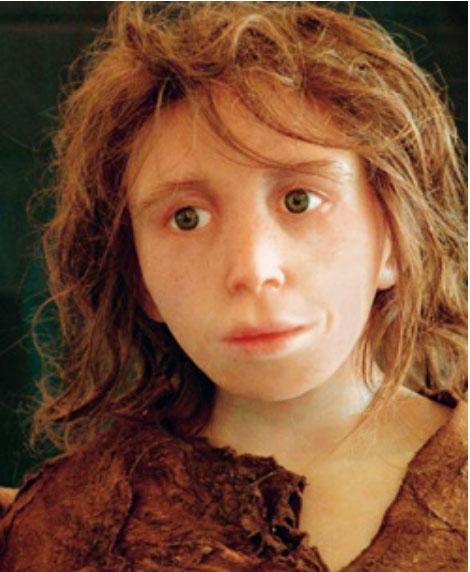
Humans Dying Out
When the Sapiens encrouched on another human territory, the other humans invariably died out, eventually leaving Sapiens to be the only surviving species of the Homo genus. What if they didn't die out? What if they co-existed with us today in modern society? How would society be different? Would it open up a new class structure? If racism exists where it's the same species, how would it be if it's not even Sapiens? What kind of racial divide would it entail?
How could they have all died out leaving us, Sapiens, the only surviving species of Homo genus? Language?
2 The Tree of Knowledge
Sapiens were Ordinary 150k years ago
(p 32) Sapiens were not significant species 150k years ago - no major leap happened. Sapiens did not rise in stature to be on top of the food chain. They were not differentiated from the other animal species even though they already had the same brain size as the current Sapiens. It is speculated that maybe their neural connections were not yet as sophisticated as ours, thus their cognitive abilities were low (low IQ). We would not be able to teach them arithmetic.
40k Years of Cognitive Development
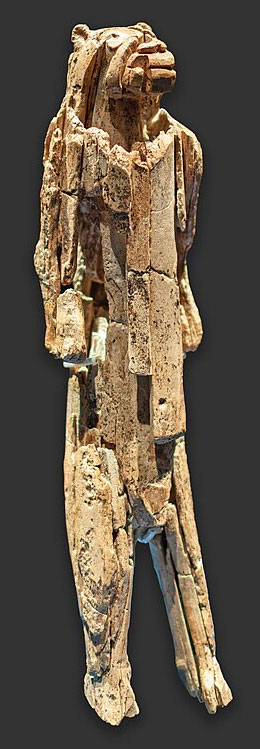
Lion-man of Hohlenstein-Stadel
Language
Developing a sophicated language was a game-changer that probably allowed Sapiens to leap frog their way into evolution. Whereas a monkey can communicate, "There's a lion!", Sapiens could articulate, "Beyond that mountain on the horizon, there is a winding river. Follow it for 3km and you'll find a cave to your left, right beside the big Oak tree. There is a lion that lives there."
Developing this language was borne out of social imperatives. It was important to communicate nuances within the tribe on who could be trusted, who is cheating, gossip, etc. All these are essential in forging the tribe. It is possible that the language developed because of the need to gossip. Even today, accomplished professionals gossip...even 'evolved' yoga teachers.
Fiction
What is even more remarkable about language is the ability to express what does not exist - only Sapiens can do that. Primitive Sapiens can say, "There is a lion in the bushes." But cognitive Sapiens can say, "The lion spirit is the guide of our tribe." This ability to create fiction brought about the existence of countries, religion and money - these are all fiction created by Sapiens. If enough people buy into this fiction, then people in large numbers can collectively have a culture - a binding mechanism to communicate and control large numbers of people who don't know each other (animals can cooperate but only with members of their tribes or who they know, but not with strangers).
Chimp Analogy
Chimps are hierarchical headed by an alpha male in a tribe of 20 to 50. When the alpha male status is challenged, the contenders form a coalition with other members of the tribe - male and female. These are the members they have gossiped, groomed, kissed, hugged and searched food with. They intimately know each other. In the end, the winning alpha male is not necessarily the strongest but one who has a strong and stable coalition. One tribe competes with other tribes for territory, food and mates.
Sapiens do this the same way, but can form coalition by gossip in large numbers of people who don't know each other (think Trump supporters across the globe). But gossip only goes as high as 150 tribe members based on intimacy - beyond that, the tribe splinters. How then could the Sapiens transcend that 150 threshold? The answer could lie in fiction that serves as the glue that holds them all together - the fiction of religion, corporations, and government. These fiction only exist in their minds...but they collectively believe it. There lies the power of fiction. How can you convince people there is such a thing as country based on things that exist...rivers, mountains, lakes. Not a chance. So, someone really needed to develop a fiction to create the concept of country. No other animal is capable of doing this. e.g. 2 Catholics who don't know each other can pool their funds to build a church.
The challenge is not in telling the story, but in making people believe that there is a god and heaven, that there are imaginary lines on the planet defining boundaries of a country or an fictional entity created by law that outlives its founder.
Bypassing the Genome
Changing the Story
To change public behavior from their belief in the fiction, it becomes necessary to change the story. This also changes the belief system. Today, we simply call it gaslighting. It usually takes a change in environment or genetic mutation to change species behavior. But Sapiens are able to manipulate public behavior by simply changing the fiction - this bypasses DNA and environment and accelerated the change, sometimes overnight especially when the narratives are changed to a revolution.
Homo erectus
(p 51) 2 million years ago, genetic mutations resulted in a new human, the Homo erectus. But their stone tools didn't change for all those 2m years. There was no advancement whatsoever, perhaps there was no genetic mutation that happened. But for Homo sapiens, 70k years ago, some genetic mutation must have happened for dramatic changes to happen in their behavior in the next 40k years - including abstaining from sex. Or perhaps, it was their ability to create fiction, allowing them to communicate, collaborate and do things in large numbers. In a one on one brawl, the Neanderthal can beat the Sapiens. But on a thousand on thousand, Sapiens can beat the Neanderthal because Neanderthals have no means to create a coalition of that number - they can't make fiction.

History and Biology
Creating Fiction to Bypass Biology
Sapiens' ability to weave fiction and alter their behavior constitute culture. Culture continues to evolve and through time, they make up history. History moved faster than biology could evolve, thus the Cognitive Revolution began the overtake of history on biology. Of course, Sapiens are still bound by our DNA programing.
Our advantage against other apes begin only at a scale of 150 pax - less than that and they are probably superior. But at a thousand pax, the difference is distinct. Pool together 1000 chimps at Grand Central Station and it's chaos. But 1000 Sapiens there would be orderly. They might even do a flash mob.
Our ability to make tools have not changed in 30k years - the dexterity of our hands remain unchanged. But in the last 30k years, our tools have progressed from obsedian spears to ICBM missiles. One person can make the spear but it takes thousands of people across several countries and continents to make a missile. This was possible because of the fiction we all subsribed to - illusion of government, money, nation and church.
3 A Day in the Life of Adam and Eve
A Day in the Life of Adam and Eve
Even though we have modern technology and have become smarter than our ancestors, we still have the instinct and thinking of our hunter-gatherer ancestors of old...long before the agricultural past, going beyond 12,000 years in the past. e.g. we binge on high calorie food (sweet and greasy) causing obesity, when there are healthier alternatives. 30,000 years ago, the sweet things available were ripe fruits. When you find one, you eat as much as you can before the baboons finish it off. This habit remains to this day - it's hard-wired into our genes. This can explain why we feel alienated, depressed and pressured.
Ancient Commune Theory
Another evolutionary theory, although contentious, is the Ancient Commune Theory which states that there is no nuclear monogamous family but an entire village looking after the offsprings. Women mate with as many men as possible thinking that the baby will have all the virtues of the man she mated with - storytelling, hunter, gatherer, lover, etc. No man would know who his child is, or even thinks that there is a bit of him in every child. Thus, men look after all offsprings - it takes a village to rear a child. It is only in recent history science learned that only one sperm can impregnate a woman. This explains why in modern times, divorce is high and infidelity is normal - monogamous relationships are not hard-wired in our genes.
There are hardly any artefacts to support either of the theories. Looking at modern day foragers could be misleading because they could have been influenced by nearby modern cultures. These surviving foragers now live in isolated and inhospitable places and cannot be compared to the foragers of ancient who lived in fertile and abundant areas. Besides foragers have their own cultures. Diversity makes many templates for all tribes, spawning many different cultures. What we currently know is simply a best-guess.
The Original Affluent Society
What we can generalize about pre-agricultural Sapiens is that they lived in bands of several dozen, perhaps even a hundred. They knew each other intimately and interacted widely - loneliness and privacy were rare. One band may have aliances with other bands but hardly have contact with one another. They were nomads and roamed within an area of a hundred square km which they considered their territory. They may have settled permanently along shores or rivers because of its abundance. They also studied effects of season change, which foods made you sick, animal behavior, weather patterns, etc. They were stronger and faster than current Sapiens. They lived far simpler but richer lives. A Chinese forager will leave her house and spend the day digging for roots, hunting frogs, catching rabbits, picking berries, then come back to camp and cook, then then spend time gossiping while kids play in the dirt. They get better nutrition from a variety of what's available in the forest. Now, the Chinese factory worker does the same repetitive thing day-in and day-out and comes home, prepares same old dinner (wheat, potato or rice), washes dishes, sweep the floor, does laundry, feeds the dogs. etc.
They may have domesticated some animals but they definitely had dogs. Dogs and human go back 15,000 years. Then the Sapiens population was about 22M (today, we have 8.1B, a whopping 380X more!)

Downside
While pre-agricultural Sapiens had shorter workweek, ingested varied nutrition, and rarity of infectious diseases, it wasn't all roses. They had a high infant mortality rate, they might suffer from feast and famine, an minor injury could be a death sentence and band members may kill old or injured members to make resources avaialable for survival (and not for caring the injured).
Talking Ghosts: spiritual/mental life of hunter-gatherers
They were probably animists - believing that all of creation (animals, plants, demons, rocks, trees, etc.) is sentient. There is no hierarchy - humans do not have the right to use the planet for its own consumption. It's all speculative. Scholars cannot even agree about the ancients' view of monogamous relationships, nuclear fammilies and private property.
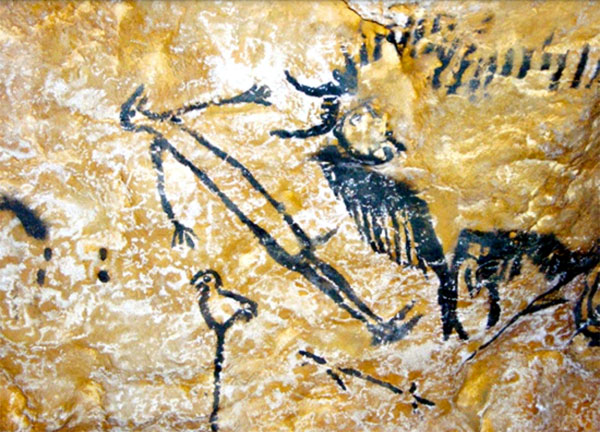
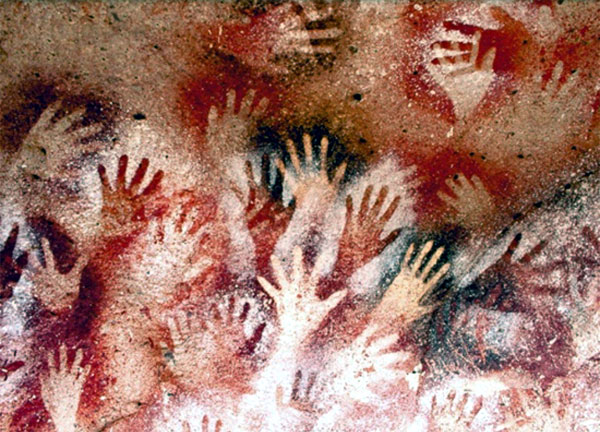
Peace or War?
Was there war between forager societies? Again, the experts are divided. Some say NO, because war began in the Agricultural Age when private property was introduced. Others say that foragers were cruel and vicious. Again, no one really knows from the litte and conflicting scraps discovered. In Portugal, skeleltal remains suggested no violence but in Ofnet, there was signs of massacre. Even though evidence is scarce, the foragers paved the way for Sapiens to make it through the Agricultural Era.
4 The Flood of Sapiens
The Flood
A great milestone was the first human crossing of the sea from Afro-Asia to Australia 45,000 years ago. This began the Sapiens' ascent to the top of the food chain and change the environment. Upon arrival on the continent, they saw giant-like creatures that didn't exist in Africa or Asia - 200-lb kangaroo, marsupial lions, giant koala, flightless birds twice the size of ostriches, etc. In just a few thousand years, these megafaunas became extinct - not climate change, but because of Sapiens. Globally, when Sapiens appeared on the landscape, mega fauna die-out - not just in Australia. How could a stone-age culture decimate the mega fauna? 3 reasons:
- Megafauna are slow to reproduce, they had no fear of Sapiens yet
- Sapiens cleared out vast tracks of land to plant, destroying megafauna habitat
- Climate change + Sapien encroachement were too overbearing for the megafaunas
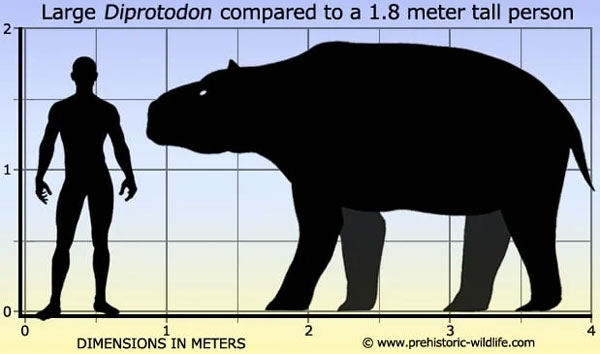
America
More devastating was the arrival of Sapiens in the Americas 16,000 years ago (American Indians?). From Africa, they went up to Asia, then north to Siberia and crossed the land bridge to Alaska. They headed south and populated the Americas. All this was done in just 2000 years. No other animal moved this quick across several climates with the same genes. It didn't take long until the megafauna of the Americas faced extinction - saber-tooth tigers, giant sloths, wild horses.
In summary, the Sapiens wreaked extinction in their wake wherever they showed up, including extinction of other humans - Neanderthal, Denisovans, Homo Erectus, etc. Sapiens = ecological catastrophe/mass extinction. This is considered the First Wave Extinction. There would be 2 more.
Part B: The Agricultural Revolution
5 History’s Biggest Fraud 106
History’s Biggest Fraud
Building Pyramids
Memory Overload
There is No Justice in History
Part C: The Unification of Humankind
The Arrow of History
The Scent of Money
Imperial Visions
The Law of Religion
The Secret of Success
Part D: The Scientific Revolution
The Discovery of Ignorance
The Marriage of Science and Empire
The Capitalist Creed
The Wheels of Industry
A Permanent Revolution
And They Lived Happily Ever After
The End of Homo Sapiens
--- Gigit (TheLoneRider)
YOGA by Gigit ![]() |
Learn English
|
Learn English ![]() |
Travel like a Nomad
|
Travel like a Nomad ![]() |
Donation Bank
|
Donation Bank ![]()
Leave a comment?
Next story:

![]()
![]()
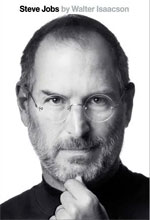
![]()
![]()
Steve Jobs
(Aug 6 - Sep 26, 2024) The book was released Jan 1, 2011 and became a bestseller. 10 months later, Steve Jobs was dead. The book became iconic and Walter Isaacson became the biographical guru of the age. I'm not exactly a Jobs fan, but I wanted to read this book by my favorite author....more »»
»» back to Book Review
»» back to Homepage
ARCHIVE 2025:
JAN |
FEB |
MAR
1970 |
1973 |
1975 |
1976 |
1977 |
1979 |
1981 |
1996 |
2000 |
2001 |
2002 |
2003 |
2004 |
2005 |
2006 |
2007 |
2008 |
2009 |
2010 |
2011 |
2012 |
2013 |
2014 |
2015 |
2016 |
2017 |
2018 |
2019 |
2020 |
2021 |
2022 |
2023 |
2024 |
2025 |
ALL BLOGS







